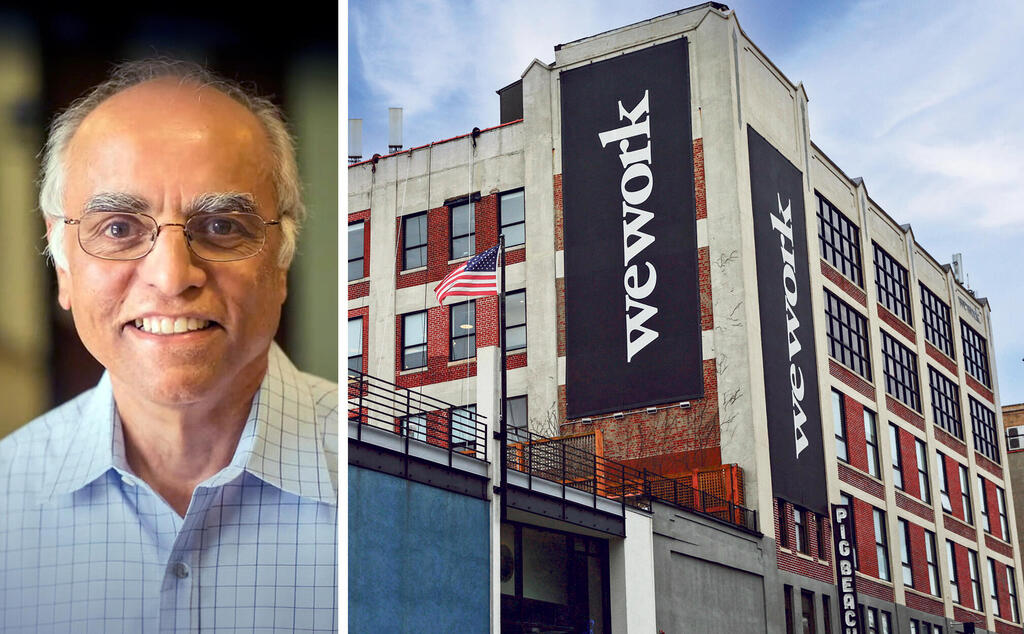
A privately-owned, leaner, Adam Neumann-free WeWork ready to emerge from bankruptcy
The office-sharing company, which at its peak was the most valuable startup in the world with a value of $47 billion, emerged from bankruptcy with an estimated value of $750 million, led by new owner Anant Yardi, founder of Yardi Systems, a private real estate management software company
The coworking company WeWork is expected to resume normal operations after a New Jersey judge approved its restructuring plan, allowing the company to emerge from bankruptcy and to eliminate $4 billion in debt. Now, all that’s left is for WeWork to prove that its core business model is viable and not just grandiose promises.
WeWork, which was the world's most valuable startup in 2019 with a market value of $47 billion, filed for creditor protection in October. Founded in New York by Adam Neumann and Miguel McKelvey, the company had to undergo reorganization after being overwhelmed by debt and soaring rental costs. The agreement reached with its new owner, Anant Yardi, indicates that WeWork is becoming private again, raising $450 million (most of which came from Yardi), closing about 160 locations worldwide out of 760, and securing new leases at lower costs. These moves are expected to save an additional $12 billion, according to the company. In April, WeWork’s advisors valued the company at $750 million and predicted annual revenues of around $2.5 billion by 2028.
"Even though much has changed, we remain committed to the core elements that make WeWork so special," said Yardi, including, "our amazing community, our beautifully designed spaces, our innovative technology, our global scale, and our entrepreneurial spirit." Yardi outbid founder Neumann, who attempted to repurchase the company last year. Neumann approached WeWork several times about returning before it filed for bankruptcy. According to Neumann, the company refused to cooperate, and he withdrew his efforts only after Judge John Sherwood, who is overseeing the bankruptcy case, ruled that his offer was irrelevant as it did not address the debt. His initial offer included an infusion of $200 million, followed by a revised offer estimated at $550 million.
"For several months, we tried to work constructively with WeWork to create a strategy that would allow it to thrive," Neumann told The New York Times after withdrawing from the race. "Instead, the company looks to be emerging from bankruptcy with a plan that appears unrealistic and unlikely to succeed." Judge Sherwood said upon approving the reorganization that it would allow WeWork to be a "sustainable and successful company."
According to the company’s announcement, current CEO David Tolley will be replaced by John Santora from real estate firm Cushman & Wakefield. Santora will be WeWork's fourth CEO in five years since Neumann was ousted following a failed IPO and severe public criticism over its problematic corporate governance and deals led by Neumann for his personal benefit. "I believe that a flexible working model is much more than an option," said Santora. "It is a strategic imperative for companies looking to maximize the efficiency of their real estate footprint and their dynamic workforce."
WeWork completed an IPO on the New York Stock Exchange in 2021 via a SPAC merger. The deal valued the company at $9 billion, which plummeted sharply to $270 million by last August, forcing it to declare bankruptcy. In the meantime, thousands of employees were laid off and numerous leases were ended in a bid to survive.
As part of the restructuring plan, the company’s board will be replaced, with four out of seven members coming from Yardi Systems, which became the main shareholder through its subsidiary Cupar Grimmond. One seat on the board of directors is reserved for a representative of Japanese investment giant SoftBank - WeWork's largest investor over the years - which poured in about $18 billion in capital and debt. Softbank also provided some of the current capital and is today a minority shareholder.
Yardi Systems is a private real estate management software company founded by Anant Yardi in 1982. Its annual revenues are reported to be $3 billion. Yardi's interest in WeWork began two years ago, when he injected $175 million in debt and bought $40 million of stock through Cupar Grimmond.
Despite having recorded only one net profit since its founding 14 years ago in 2012, and despite the office market's decline, WeWork and its new owners believe that the coworking space model is a viable business. In recent years, the office rental market has weakened significantly, initially due to the COVID-19 outbreak and the shift to remote work, and subsequently with the advent of hybrid work models. By the end of 2023, office vacancy rates in the United States stood at 19.6%, the highest since 1979, compared to about 12% before 2020. The market crisis that hastened WeWork’s collapse also enabled it to renegotiate leases, which account for about two-thirds of operating costs. The company now hopes that with leaner contracts and by leaving unprofitable areas, it will be able to turn a profit for the first time in over a decade.














